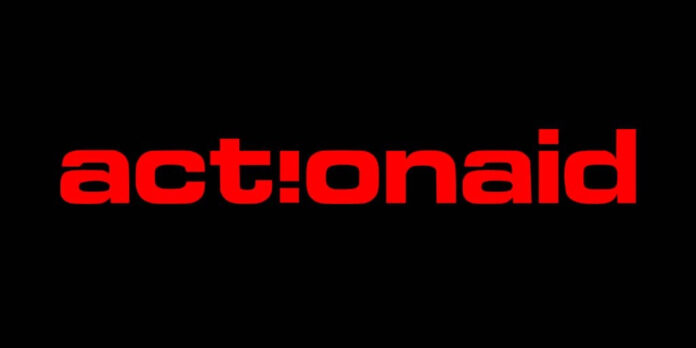AS hardship squeezes ‘blood’ out of Nigerians, ActionAid Nigeria, AAN, yesterday, called on the Federal Government to revisit harsh policies draining the well-being of Nigerians.
The call was made by the Country Director, AAN, Andrew Mamedu, during the ‘End Austerity Campaign Launch with the theme ‘Public Discourse on Ending Poverty and Inequality in Nigeria’, in Abuja.
Mamedu said ‘The Impact of Austerity Measures on Poverty and Gender Inequality in Nigeria’ and ‘The Impact of Nigeria’s Removal of Fuel Subsidies and the Floatation of the Naira on Women and Girls’, both policies have escalated suffering across the country.
He said: “It is with both great honor and deep concern that I stand before you today to address the challenges confronting our nation. As we reflect on the state of poverty, gender inequality, and the systemic austerity measures that have compounded the plight of millions of Nigerians, we are reminded of the urgency of our work.
“The data before us tells a stark story, but more importantly, it calls us to action. As the leading organization overseeing this critical research and campaign, ActionAid Nigeria is here not just to diagnose the problem but to advocate for transformative solutions.
“In the past decade, Nigeria’s socio-economic landscape has shifted dramatically, with consequences that have been particularly harsh on the most vulnerable members of our society; women, children, and the poor.
“According to our latest research, the poverty rate in Nigeria has surged, with over 40 per cent of the population living below the poverty line. This translates to over 133M Nigerians living in multidimensional poverty.
“The underlying cause of this poverty is rooted in the heavy burden of austerity measures, imposed as part of broader macroeconomic policies.
“Based on our research, from 2010 to 2020, Nigeria’s debt stock ballooned by over 300%, reaching a staggering ₦31 trillion by the end of 2020. As of March 31st, 2024, debt stock stands at USD 91,463.99, equivalent of N121, 670.49. trillion consuming 74% of government revenue, leaving little for vital sectors such as education, healthcare, and social protection.
“Education, once a beacon of hope for social mobility, has suffered immensely. Over 38 million children remain out of school in Africa, with Nigeria accounting for a significant share of these numbers. Girls from poor and rural communities are particularly affected, with less than five per cent completing secondary education.
“The quality of education has deteriorated, and many schools lack even the most basic resources. Today, over 17 million teachers are needed across Africa, with Nigeria in dire need of a significant portion. Healthcare, too, has been ravaged. Clinics are dilapidated, understaffed, and underfunded.
“According to World Health Organisation, Nigeria ranks 2nd highest in maternal deaths worldwide in a 2023 report. According to the report, Nigeria accounts for 29 per cent of the global toll in 290,000 maternal deaths cases every year. Citizens continue to die from preventable diseases.
“These are the consequences of a system starved of investment due to the crushing weight of debt repayments and austerity cuts. Let us be clear: austerity does not affect all people equally.
“Women bear the brunt of its impact. As primary caregivers, they are disproportionately affected by cuts to healthcare and education.
“In communities across Nigeria, where austerity measures have led to the withdrawal of social services, it is women who step into the void, providing unpaid care work at the expense of their economic independence and well-being.
“Gender inequality remains pervasive. While women make up nearly half of the population, they are underrepresented in decision-making and economic participation.
“According to the austerity report, Nigeria has more than 64% or representation of women in senior positions, but women earn only 50 per cent of the income earned by men.
” The barriers to women’s advancement are deeply entrenched, from discriminatory laws and practices to limited access to resources and opportunities.
“Despite efforts to close the gender gap, the lack of investment in women’s economic empowerment has only widened the disparities.
“Stories Jemila in FCT – five children now had to withdraw 3 of her daughters from school to be house help. This was not the dream she has for her children Daniel in Okun-Aja Community – because of over 100% increase in the cost of transport, the majority of the JSS students walk from Okun-Aja to Ogombo, which takes them about an hour – they have to use what they have to eat. Daniel slumped and died after recuperating recently Taraba – people now eat casava leave as their main food.
“The health pandemic will increase in the next three years because of the lack of health care now happening. There is home birth, eclampsia, cancers, neo natal diseases and maternal mortality.
“What can we do?We cannot afford to remain passive in the face of these challenges. The research is clear: Nigeria’s path out of poverty and inequality lies not in austerity, but in investment, investment in our people, our services, and our future.”
Meanwhile, the AAN boss said the #EndBadGovernance protest was borne out of these policies that have seriously wrecked havoc in the society, hence the government needs to take steps to ameliorate the plight of Nigerians: Reform Economic Policies- shift from austerity to a more progressive fiscal approach; Increase Education and Healthcare Spending- prioritize social investment, particularly in education and healthcare; Empower Women Economically – Economic empowerment of women is not a luxury; a necessity; Tackle Debt and Financial Imbalances -address the root of the problem, renegotiate debt servicing terms and explores options for debt relief.

